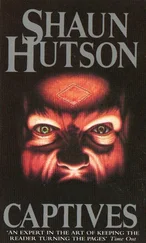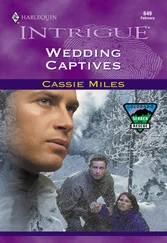Norman Manea - Captives
Здесь есть возможность читать онлайн «Norman Manea - Captives» весь текст электронной книги совершенно бесплатно (целиком полную версию без сокращений). В некоторых случаях можно слушать аудио, скачать через торрент в формате fb2 и присутствует краткое содержание. Год выпуска: 2014, Издательство: New Directions, Жанр: Современная проза, на английском языке. Описание произведения, (предисловие) а так же отзывы посетителей доступны на портале библиотеки ЛибКат.
- Название:Captives
- Автор:
- Издательство:New Directions
- Жанр:
- Год:2014
- ISBN:нет данных
- Рейтинг книги:3 / 5. Голосов: 1
-
Избранное:Добавить в избранное
- Отзывы:
-
Ваша оценка:
- 60
- 1
- 2
- 3
- 4
- 5
Captives: краткое содержание, описание и аннотация
Предлагаем к чтению аннотацию, описание, краткое содержание или предисловие (зависит от того, что написал сам автор книги «Captives»). Если вы не нашли необходимую информацию о книге — напишите в комментариях, мы постараемся отыскать её.
Captives
This is a moving account of a country shaken by communism and anti-Semitism and haunted by recent atrocities, from "a distinguished writer whose vision of totalitarianism is close to Kafka's cloudy menace, universal yet internalized" (Richard Eder,
).
Captives — читать онлайн бесплатно полную книгу (весь текст) целиком
Ниже представлен текст книги, разбитый по страницам. Система сохранения места последней прочитанной страницы, позволяет с удобством читать онлайн бесплатно книгу «Captives», без необходимости каждый раз заново искать на чём Вы остановились. Поставьте закладку, и сможете в любой момент перейти на страницу, на которой закончили чтение.
Интервал:
Закладка:
— Mhm. She didn’t write anything about having a brother.
Should have seen that one coming. The end of the letter had been clear.
— Make yourself comfortable. Perhaps you’d like to wait. Have a seat.
Proceeded to pick a pile off the chair. Miscellaneous trash. Couldn’t find a place for it. Threw it on the bed.
— My sister’s getting ready to clean house. There’s a bit of mess. . wasn’t expecting visitors. .
— Ah, no. Just dropped in. . unexpected.
Ill at ease and uncertain of the situation, Mr. suit-shirt-tie took a seat, with a distrustful glance in my direction. Wondered if Mr. Grig wasn’t a total idiot, after all.
— She didn’t mention anything to me about a brother, the less-than-complete idiot said for the second time.
— She’s my step-sister, actually. My mother died a long time ago. My father remarried right away.
— You seem younger.
— My appearance. . Healthy skin.
Grig gave me another long look.
Had a crazy desire to draw him into a sincere conversation, wanted him to expound his principles — to win his confidence: there’d be confessions, promises, and he would slap me on the shoulder like a future brother-in-law. Managed to say:
— Grig’s the name, right? My sister told me about you: she holds you in high esteem. . said something about your letter full of elevated thoughts.
The guy loosened his grip on his coat and set his briefcase down.
— Yeah. . kinda like to say everything outright, especially in writing, because it lasts.
— Good point. My sister told me about your sister as well, the one who’s a professor at Ploieşti. And you’re close with your sister, too — that says a lot about a man’s character. Also heard you’re successful: a guide at the exhibition, several factories calling to hire you.
— Not exactly, but the bit about being able to transfer anywhere is true.
There should have been a glass of slivovitz by now, dirty jokes, tales from the army. However, Grig was starting to look around, and if he got too curious, the jig’d be up.
— Have a seat, please. Have a seat. Monica will come any moment now. Have a seat. Was at Ploieşti myself some years ago. Met your sister, the ISEP graduate, at a youth action meeting — it was a great pleasure for me. Who’d have thought there’d be a family tie one day? To have met your sister, who’s even the director. . can’t figure out how great the family resemblance is, but it was her, for sure.
Hand on briefcase again, the guest gave me another long look.
— My sister never worked at Ploieşti.
— That’s what you wrote, no? Your sister’s the director. There can’t be a mistake. Monica was saying. . as I know very well.
Was ready to strangle him. There was nothing else to do, and the words grit between my teeth like sand.
— There was no accident with your leg either? No poor grades in Russian and chemistry? Which means that nothing’s for certain anymore: not the stupid letters, the ads in the personals, not even the spelling mistakes? So maybe your Excellency’s the Swiss ambassador, or some long-lost brother of mine, or maybe the prosecutor who’ll be asking for my head?
All that was a useless bother. Everything was already lost. The obliquely, vengefully smirking visitor looked me straight in the eye and said:
— Mhm. That’s how the first letter is, till we get to know each other. My sister’s actually a manager in Bârlad. Doesn’t have anything to do with Ploieşti.
— Whatever, whatever. . my mistake. My memory lets me down sometimes. In any case. . remember very well that the director said her name. Still. . won’t insist if you don’t want to wait. . Maybe call and drop by tomorrow. .
Resumed a more respectful tone. My words kept dragging themselves out, but the burley, wide-faced engineer was already at the door, ready to leave, briefcase and topcoat in hand. With his hand on the door, he turned to me and smiled. Yes, he’d drop by tomorrow or telephone.
The door clicked behind him. Should have broken down the door, run downstairs after him. He couldn’t leave like that, all of a sudden, without explaining himself — it would be necessary to say: “You mean to say that back there, where you are respected, advanced, and distinguished, no one jumped into the flames? You know nothing, as if you were the Swiss ambassador or something. You were on another shift, in another section, at another factory, in another city, the other madman, the other, at some other time, somewhere else? Have you have no memories of anything, you sentimental fool? My dear fellow citizen, you are a crocodile.”
Time passed: had it been a special meeting, with this navy-blue visitor named Grig, Grigore Butnaru?
Hence: had left my office anyway. There were machines and mechanisms of all kinds. For me, unbearable. . because babies can’t stand typewriters. Repeated the phrase without being able to explain it: it was a watchword, an excusal from indiscretion or refusal. The Chief Engineer watched me run all the way downstairs. That fateful phrase had force — those words had struck him. The crocodile despises me (even now) because of letting myself be pushed into anonymity, because of my correct greetings every morning, my way of bowing sanctimoniously, comme il faut .
My lying and insulting makes me the ideal resident of this coop, but the chief remains cushioned and cordial; he didn’t even want to acknowledge that stupid phrase which did, of course, have force. The powerful and twisted phrase didn’t even touch him; it didn’t strike him at all. The boss remained amiable, absent, self-assured, comfortable, logical, as he went on playing with his fine, fragile hands in a melancholy way. Since long ago, since infancy, he’s had long, nervous fingers. We were classmates once, and back then he had perfect, pallid hands. We were like a bunch of newborns then, and we had memories, we believed in logic to the end, to the bitter end and beyond.
• • •
The new student made his way down the row from the teacher’s desk to the door. He wore a perfect, aggressively white shirt, starched like a board. This new classmate was slender. He had brown hair, and bowing ceremoniously in an almost courtly way, he shook everyone’s hand, a smiling comrade, brisk and manly. Slowly but surely, the others began to fall under the sway of his smile, straight into his palm: conquered. Shrewd, sullen, timid sons of peasants — with hands used to the hoe, the plow, and the scythe — bent over their books till late at night, they regarded him prudently, then with hostility, then mockingly, and after a few more seconds they instinctively wanted to become his future admirers and bodyguards. He shook my hand, and for an instant he looked startled. Our gestures were identical. We bowed. We smiled. We shook hands. He seemed momentarily moved. But he smiled again, walked on, and, after sitting down in his corner, flung me another brief glance.
The new boy was a mediocre student, I understood after a few days. That put him in good standing with his classmates. I asked him during a break if he had brought the “transfer slip” from the political youth organization. He wasn’t part of the organization, he replied. I asked him why. He smiled: in Giurgiu they only let swimmers in, and he didn’t know how to swim. The guys laughed, and I laughed with them. I asked him what his father did. He wasn’t smiling anymore, and he waited until the last trace of cheerfulness had left our faces, and then he answered: his father was working as a laborer in the salt mine nearby. The bell rang. I shot him a brief, friendly signal.
He respected my position among our classmates from the start. Admired and followed by them, he took part, of course more distantly, in their way of following me.
Читать дальшеИнтервал:
Закладка:
Похожие книги на «Captives»
Представляем Вашему вниманию похожие книги на «Captives» списком для выбора. Мы отобрали схожую по названию и смыслу литературу в надежде предоставить читателям больше вариантов отыскать новые, интересные, ещё непрочитанные произведения.
Обсуждение, отзывы о книге «Captives» и просто собственные мнения читателей. Оставьте ваши комментарии, напишите, что Вы думаете о произведении, его смысле или главных героях. Укажите что конкретно понравилось, а что нет, и почему Вы так считаете.












